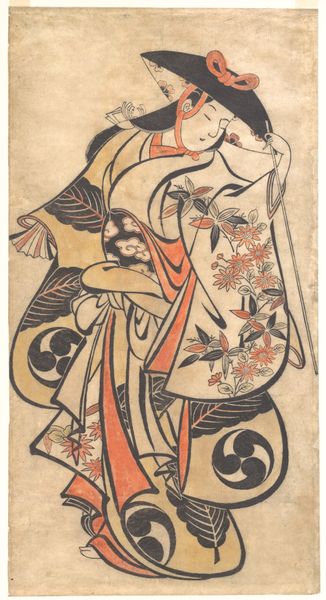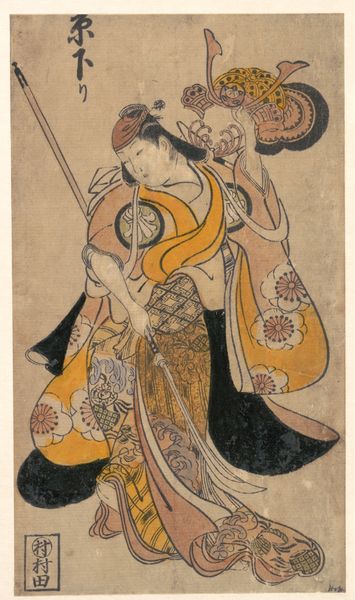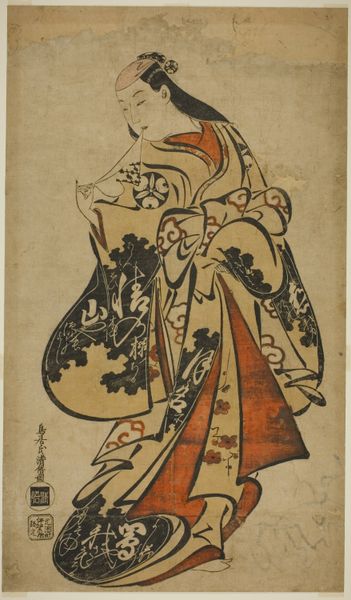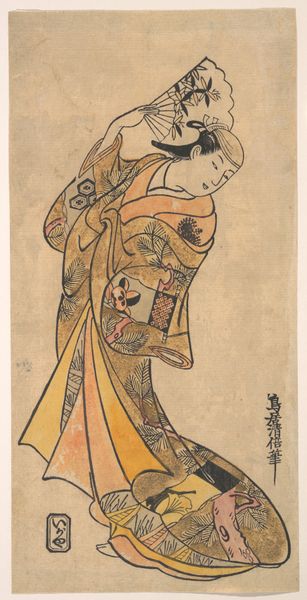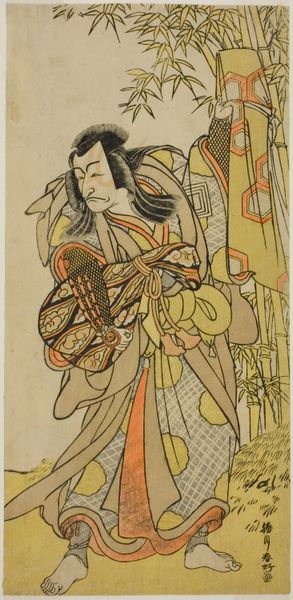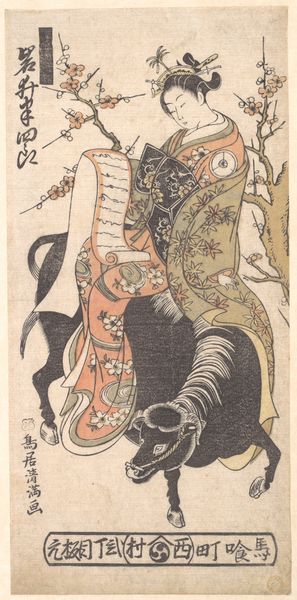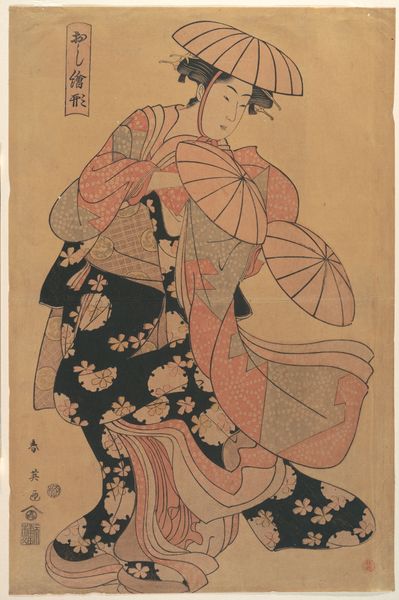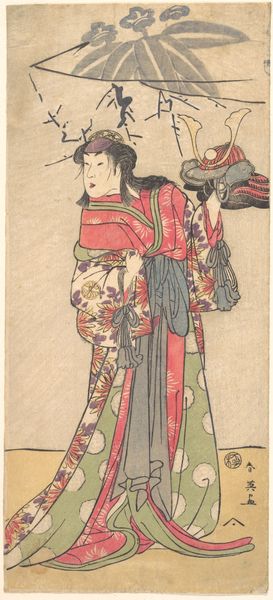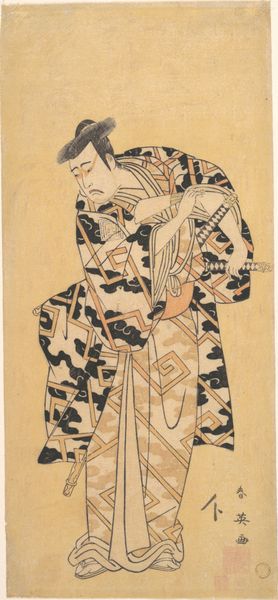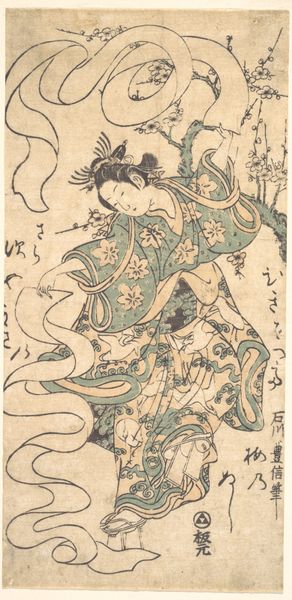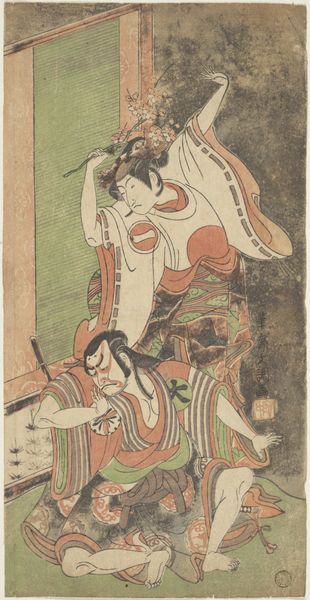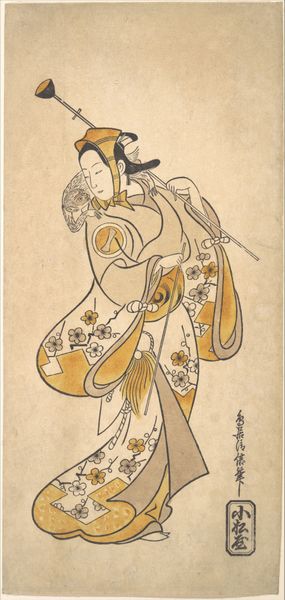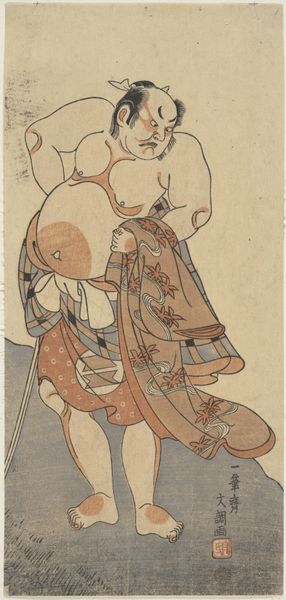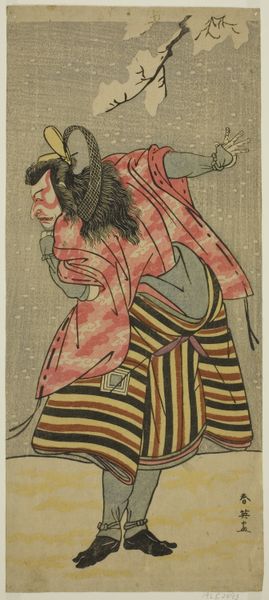
print, woodblock-print
#
portrait
# print
#
asian-art
#
ukiyo-e
#
figuration
#
woodblock-print
Dimensions: H. 10 1/2 in. (26.7 cm); W. 5 1/2 in. (14 cm)
Copyright: Public Domain
Editor: Here we have Ippitsusai Buncho's "Portrait of an Actor," a woodblock print from around 1760 to 1780. The figure seems trapped, vulnerable, yet somehow dignified. What stands out to you about this piece? Curator: Immediately, I'm drawn to the tensions in the image. Look at the actor’s posture, almost defeated, leaning against what appears to be a torii gate, often associated with Shinto shrines. Consider how the Ukiyo-e tradition, meaning "pictures of the floating world," frequently depicted actors, portraying figures who were often social outsiders. How does the inclusion of a Shinto symbol interact with the transient world inhabited by the actor? Editor: That’s fascinating. I hadn’t thought about the contrast between the religious symbol and the actor’s profession. The snake at his feet adds another layer of complexity. Is it symbolic? Curator: Absolutely. Snakes often symbolize transformation, healing, but also deceit in various cultural narratives. Its placement near the actor’s feet can also indicate temptation or a fall from grace. The work perhaps becomes a comment on societal expectations, where the actor—performing identities—becomes a target of moral judgment and control. What do you make of that contrast? Editor: It really does make you think about the precarity of reputation, particularly for someone in the public eye. He is leaning against the gate, in a kind of symbolic prison... Curator: Yes, and the "floating world" wasn't free from constraints, particularly along the lines of class, gender and behavior. Art allows us to delve deeper into understanding society as a construct. Editor: I've definitely learned new ways to read a work of art and think about the society that produced it! Curator: Exactly, that's how we continue the dialogue between art history and contemporary thought.
Comments
No comments
Be the first to comment and join the conversation on the ultimate creative platform.
